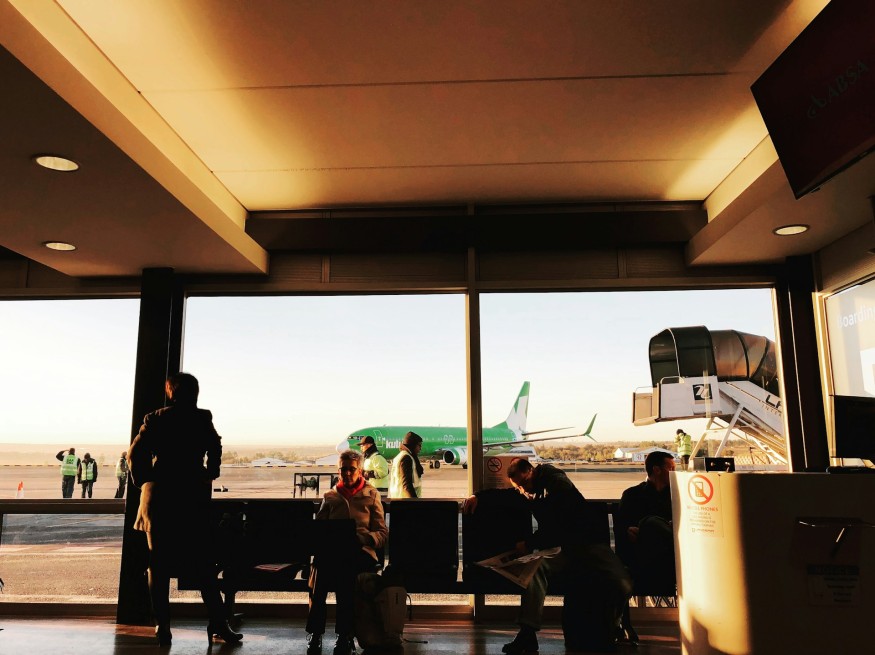
Millions of Americans could face flight chaos this weekend after the Federal Aviation Administration (FAA) announced sweeping flight capacity cuts at 40 of the nation's busiest airports beginning Friday, 7 November.
The unprecedented move, prompted by severe air traffic controller shortages amid the ongoing government shutdown, represents one of the largest preemptive aviation slowdowns in US history — and could disrupt thousands of flights during peak holiday travel.
Safety First: FAA Responds to Staffing Crisis
The FAA's decision comes as air traffic controllers enter their 36th day of unpaid work, many logging mandatory overtime as funding remains frozen. Officials cited mounting fatigue and operational risk as critical factors behind the cuts.
US Transportation Secretary Sean P Duffy confirmed the plan, saying the agency will reduce flight capacity by 10% nationwide 'to preserve safety within the National Airspace System.'
FAA Administrator Bryan Bedford reinforced that message, warning that 'pressures are building in a way that we don't feel will allow us to keep calling this the safest airline system in the world' unless corrective action is taken.
Safety First: FAA Responds to Controller Shortages
The decision comes as air traffic controllers face unprecedented strain, with many working mandatory overtime without pay. The shutdown, now in its 36th day, has left essential aviation personnel stretched to the limit, raising concerns about fatigue and operational risk.
US Transportation Secretary Sean P. Duffy confirmed the cuts during a press briefing, stating that the FAA would implement a 10% reduction in flight capacity at major hubs to reduce the risk profile in the national airspace.
FAA Administrator Bryan Bedford added that the agency is 'seeing pressures build in a way that we don't feel will allow us to continue to tell the public that we operate the safest airline system in the world.'
Which Airports Are Affected?
The complete list of affected airports includes the following international gateways:
- Anchorage International (ANC)
- Hartsfield-Jackson Atlanta International (ATL)
- Boston Logan International (BOS)
- Baltimore/Washington International (BWI)
- Charlotte Douglas International (CLT)
- Cincinnati/Northern Kentucky International (CVG)
- Dallas Love (DAL)
- Ronald Reagan Washington National (DCA)
- Denver International (DEN)
- Dallas/Fort Worth International (DFW)
- Detroit Metropolitan Wayne County (DTW)
- Newark Liberty International (EWR)
- Fort Lauderdale/Hollywood International (FLL)
- Honolulu International (HNL)
- Houston Hobby (HOU)
- Washington Dulles International (IAD)
- George Bush Houston Intercontinental (IAH)
- Indianapolis International (IND)
- New York John F Kennedy International (JFK)
- Las Vegas Harry Reid International (LAS)
- Los Angeles International (LAX)
- New York LaGuardia (LGA)
- Orlando International (MCO)
- Chicago Midway (MDW)
- Memphis International (MEM)
- Miami International (MIA)
- Minneapolis/St Paul International (MSP)
- Oakland International (OAK)
- Ontario International (ONT)
- Chicago O'Hare International (ORD)
- Portland International (PDX)
- Philadelphia International (PHL)
- Phoenix Sky Harbour International (PHX)
- San Diego International (SAN)
- Louisville International (SDF)
- Seattle/Tacoma International (SEA)
- San Francisco International (SFO)
- Salt Lake City International (SLC)
- Teterboro (TEB)
- Tampa International (TPA)
The cuts will be phased in over the weekend, starting with a 4% reduction on Friday, followed by a 5% reduction on Saturday, and a 6% reduction on Sunday. The FAA has stated that the reductions will be coordinated with airlines to minimise disruption, but delays and cancellations are expected.
Airlines Brace for Impact
Major US carriers have already started revising schedules to absorb the disruption. Delta Air Lines said it expects to operate 'the vast majority' of flights, including all long-haul international routes, while offering fee-free changes or refunds for affected passengers.
American Airlines, United, and Southwest are expected to roll out similar flexibility policies. Travel experts are advising passengers to monitor flight statuses closely and, if possible, avoid non-essential travel.
According to the FAA, even a 10% reduction could impact more than 4,400 flights daily, potentially grounding hundreds of thousands of travellers by Sunday evening.
Political Stalemate Fuels Aviation Crisis
The cuts stem directly from the prolonged federal government shutdown, which has paralysed funding for key agencies, including the FAA. Despite bipartisan calls for a short-term funding bill, Congress remains deadlocked, leaving thousands of federal employees working without pay.
The shutdown has already halted national park operations, slowed food assistance programmes, and delayed court proceedings. Now, it threatens to cripple the nation's air transportation system, which handles over 44,000 daily flights.
Industry associations, including Airlines for America (A4A) and the National Air Traffic Controllers Association (NATCA), have issued urgent pleas for Congress to act, warning of escalating risks to both safety and the economy.
What Travellers Should Do
Passengers flying this weekend are advised to:
- Check flight status frequently via airline apps or websites
- Arrive early at airports to account for delays
- Consider rebooking or requesting refunds if travel is non-essential
- Monitor updates from the FAA and the Department of Transportation
The FAA has pledged to review conditions daily and gradually restore capacity once staffing and safety metrics improve. However, travel analysts predict ripple effects could persist for up to a week, especially at congested hubs like New York, Chicago, and Los Angeles.
Originally published on IBTimes UK
This article is copyrighted by IBTimes.co.uk, the business news leader



